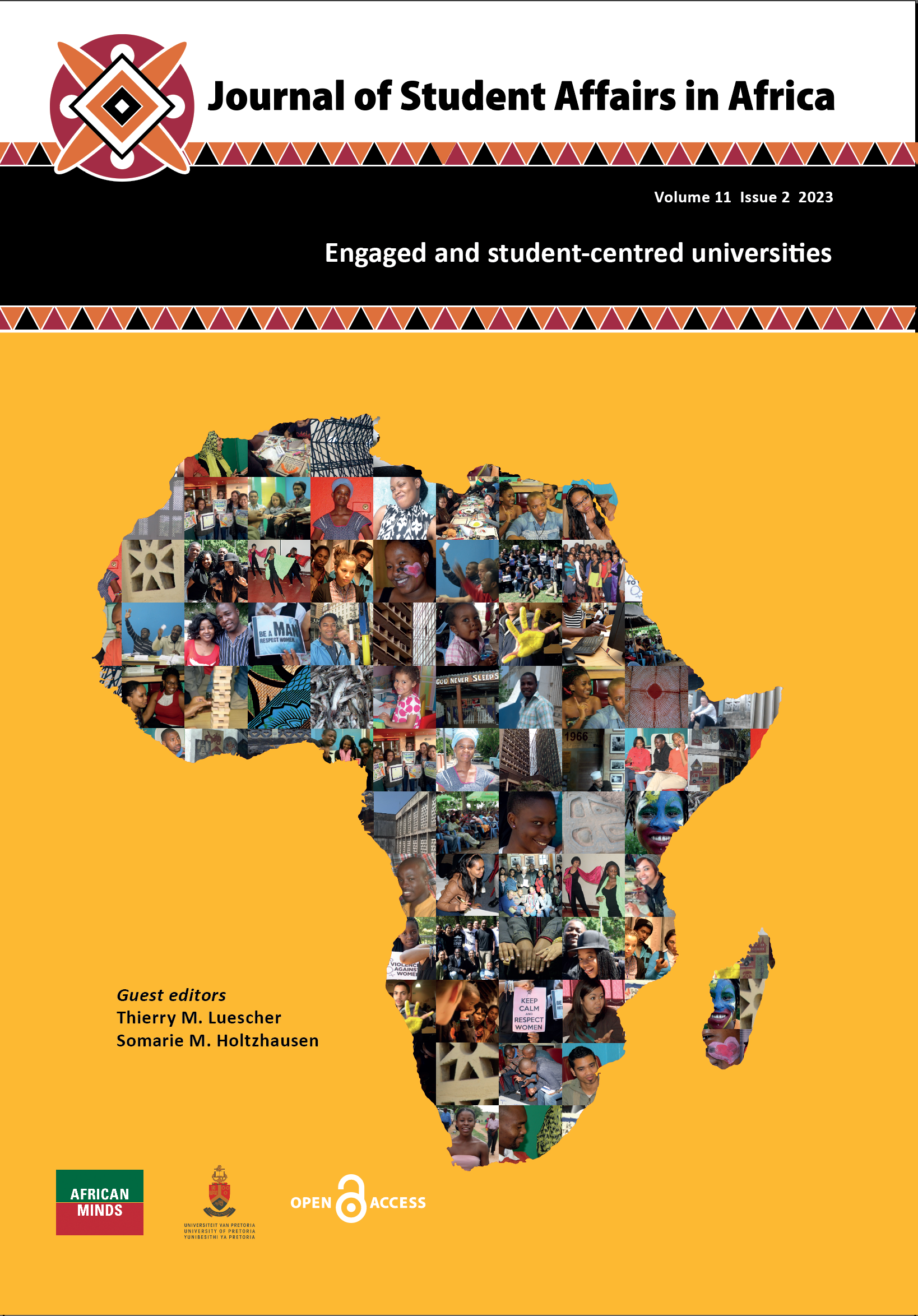Ubuntu as a valued capability for university students in South Africa
DOI:
https://doi.org/10.24085/jsaa.v11i2.3624Keywords:
Ubuntu, Capabilities, Higher Education Transformation, South AfricaAbstract
Universities are often described as institutions that can promote the wellbeing of their local populations. This is because they are central for advancing human development aims which support the aspirations of students and the communities from which they come. Nevertheless, we know this potential can be constrained by historical processes of oppression and negation of indigenous ways of being and doing. Applying the Capabilities Approach and Human Development paradigm as a normative framework for the outcomes of university education in the South African context, we argue for a focus on the centrality of capabilities (real freedoms) in assessing how well universities are doing to support student wellbeing. We pay special attention to one capability which we see as architectonic for other freedoms, which is Ubuntu. While Ubuntu is generally understood as a moral philosophy, in this paper we articulate it as a valued capability in the space of higher education. We also argue that it is a capability that has transformative and decolonial potential that can enable universities to promote student wellbeing if the conditions to practice it are in place.
Drawing from data collected through qualitative and participatory approaches in two longitudinal research projects that were carried out between 2016 and 2021 with undergraduate students in diverse universities in South Africa, we show that Ubuntu informs students’ conceptions of humanity and their aspirations for ‘a good life’ and that it can inform the vision of transformed and decolonised university spaces that reflect indigenous ways of being and indigenous ways of seeing the world.
Downloads
Published
Issue
Section
License
Copyright (c) 2023 Mikateko Mathebula, Carmen Martinez-Vargas

This work is licensed under a Creative Commons Attribution-NonCommercial-ShareAlike 4.0 International License.
Authors who publish with this journal agree to the following terms:
Authors retain copyright and grant the journal right of first publication with the work simultaneously licensed under the Creative Commons Attribution Share-alike 4.0 International License that allows others to share the work with an acknowledgement of the work's authorship and initial publication in this journal.
Authors are able to enter into separate, additional contractual arrangements for the non-exclusive distribution of the journal's published version of the work (e.g., post it to an institutional repository or publish it in a book), with an acknowledgement of its initial publication in this journal.
Authors are permitted and encouraged to post their work online (e.g., in institutional repositories or on their website) prior to and during the submission process, as it can lead to productive exchanges, as well as earlier and greater citation of published work (See: The Effect of Open Access).


